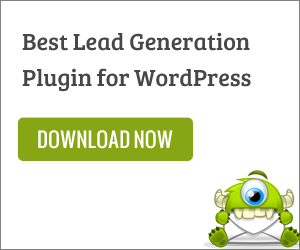I admit it. When I saw a friend and colleague achieve a huge milestone in their business, I had a little moment of jealousy. I felt left behind. I felt less than.

It was an important moment to take stock and assess what my real drivers are. Was I in business just for personal gain? I know emphatically that is NOT the case. I have a strong commitment to developing big thinkers, with big hearts, to make a big difference. I re-connected with my Purpose: offering transformational experiences that evolve leadership thinking for the planet.
Feeling jealous of someone else’s achievements is a sign of making one of the key strategic planning mistakes that leads to fear, worry and doubt:
A Selfish Scope.
A Selfish Scope in business means we are focused only on our own ambitions, our own goals, our own success. It’s a symptom of being a Non-Thinker.
Non-Thinkers are in survival mode, have a scarcity mentality, and are in a constant state of dog-eat-dog, win-at-all-costs.
It’s nasty and uncomfortable.
From a strategic thinking point of view, it will doom you to hand-to-mouth strategies.
Consider the difference between a Non-Thinker and a Global Thinker:

A Global Thinker has significant advantages. Their purpose is about ‘transformation’ – they think of the biggest benefit for the greatest number.
They have moved beyond mere personal gain to serving the fulfilment of others as well: it’s not selfless – working without concern for self – it’s SELF-FULL – working so that one’s own needs are amply met, as well as those of others.
Global Thinkers have a depth to their thinking that embraces complexity and therefore allows them to be flexible and responsive to changing conditions.
Global Thinkers know that if you think big, be big, you make a big difference.
You can find signs of being a Non-Thinker in your strategic plans.
Let’s check to see if you are making these strategic thinking mistakes:
- Does your strategy reflect an over-arching PURPOSE of survival?
Look at the wording and intent of your projects / tactics – does it hark to ‘let’s make it through the year and hope for the best’ mentality?
Survival means desperate. And depressing!
A purpose that has transformation of people and planet at its heart brings huge energy and focus to work. It filters strategy to move beyond ‘how can we survive’ to ‘how can we thrive and make our biggest impact’?
To broaden horizons, look further.
Does your strategy have a broad and ambitious purpose?
Consider OPIC, the Overseas Private Investment Corporation. It is the U.S. Government’s development finance institution. It focuses private capital to help solve critical development challenges and in doing so, advances U.S. foreign policy. It’s a win for business, a win for the developing countries and a win for international relations (so far anyway).
Here are their projections from their 2016 annual report: New projects OPIC committed to in 2016 are projected:
- to support more than 10,000 local jobs;
- generate $117 MILLION in developing country revenue; and
- lead to $7.45 BILLION of locally-procured goods and services.
The work OPIC has supported since 2008 is projected to support more than 105,000 local jobs.
While there are clear benefits for American businesses, there are also benefits that would not have otherwise existed in those developing countries.
The role of business is changing in the world. Take a look:

Business is contributing in a major way to improving the lives of others across the planet.
OPIC is a government institution that is now self-funded. This may not be your circumstance. However, when it comes to purpose, what are you contributing to the world?
- Does your strategy have a selfish SCOPE?
Consider where the benefits of your strategy are really aimed: is it mostly for the business owner / company directors / shareholders? Or is there a bigger objective to serve multiple stakeholders?
Non-Thinkers are self-oriented and are looking out for their own needs. Global Thinkers are looking to make a bigger contribution, while serving their own needs as well.
A strong social agenda can uplift staff and clients alike, even when things are tight. It’s the difference between being defensive-aggressive in survival mode and being proactive in contribution mode.
Does your strategy include a social agenda?
Aspen Medical is a local Canberra company that is one of the world’s leaders in providing outsourced healthcare solutions that has made a huge impact globally and locally. In 2009 they established the Aspen Foundation, funded from a percentage of company profits, to reduce and hopefully eradicate diseases such as trachoma and rheumatic heart disease in Indigenous communities in Australia. Aspen Medical was also the only company in the world to be contracted by 3 separate governments – Australia, the UK and the USA – to deliver their response to the Ebola crisis in two separate countries.
This is Self-FULL leadership and scope. #respect
- Does your strategy lack DEPTH?
Global Thinkers consider complex challenges. Non-Thinkers bounce around the surface: looking to fix symptoms, rather than deal with systems and story.
If your strategy looks at surface problems that your clients face, then your service to them will be surface as well.
If your strategy considers the systems your customers/stakeholders operate in, as well the underlying story (worldview, values, perspective), then you are more likely to provide richness and long-term value to them.
The Cotton Research and Development Corporation is an example of a Global Thinker with DEPTH in it strategy. When I reviewed their leadership development investments last year I had the privilege to look deeply at their strategic approach. They consider the broader environmental, social, financial, political systems at play when it comes to advancing the cotton industry. Their strategy to be of service includes development of people, product and process. They are constantly searching for the broader implications of their work, and zooming in to the immediate most effective intervention with the largest-long-reaching effect.
Well done, CRDC!
Transformation is not a small thing. Go deep to go long.
How deep is your strategy when it comes to mapping influences?
We can all do better, and deliver more. It takes clarity, connection and conviction. Make this year the year you expand the impact you make. The world needs you!
What mistakes do you see in strategic thinking? What companies do you see doing it right? Please share so we may all learn.





















